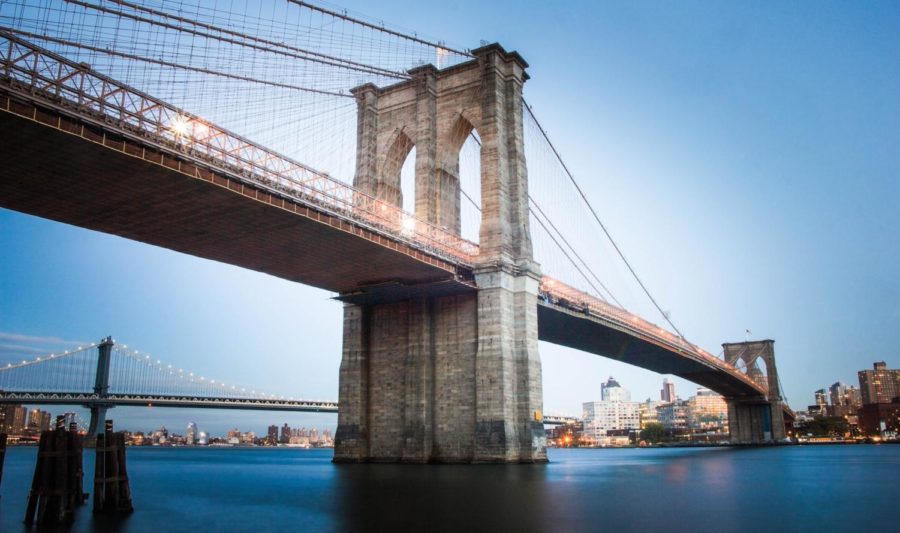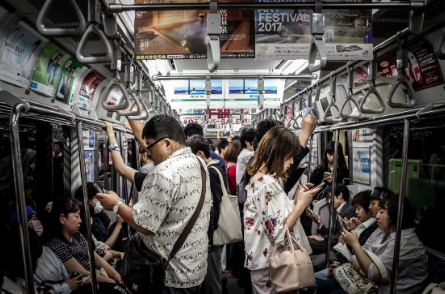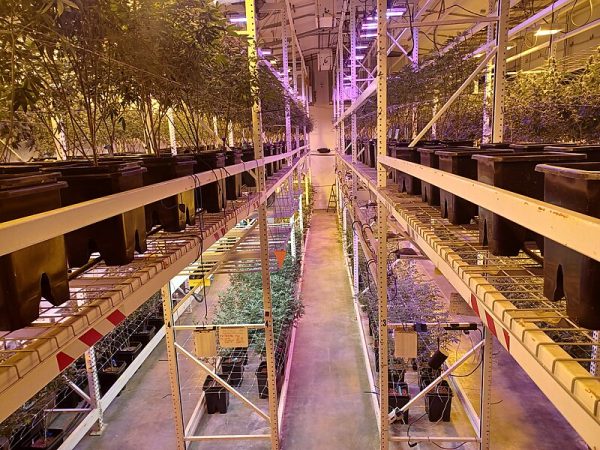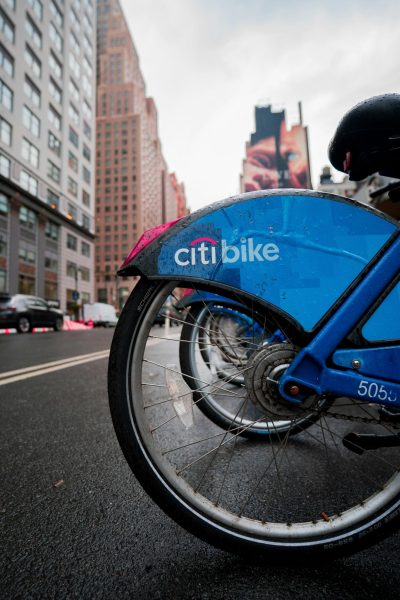The Infrastructure Saga That Would Not End
As the infrastructure debate heated up, Congress came to a halt while the public waited for an answer.
The Brooklyn Bridge, one of America’s most famous works of architecture, stands tall over the East River in New York City. Now that Congress has passed an infrastructure package, many more bridges can be built across the country, opening up new routes and revitalizing transportation-based infrastructure in the process.
Early in his term, President Biden steamrolled his agenda through Congress. However, it was clear that such success wasn’t going to last. Congress’s lack of action and constant bickering has led to Biden’s latest priority being delayed for months, infrastructure.
The debate suddenly engulfed the entire nation, with Congress arguing about the merits of a massive investment in physical, human, and climate-based infrastructure legislation. For quite some time, discussions did not show any signs of progress, even though congress passed a bipartisan infrastructure package, which funded physical infrastructure projects only, in order to accommodate both parties’ interests. House Democrats wanted it all with their $3.5 trillion social spending reconciliation package, and House Republicans wanted none of it.
The bipartisan bill passed in August 2021 by the senate and just recently by the House includes many provisions that both parties agreed on such as funding for roads, bridges, buildings, and other projects. In the senate, the effort went to plan, with 19 Republicans joining all 50 Democrats. In the house, the bill’s passing was more difficult.
Republicans in the House had attempted to delay the passage of the bill, hoping to derail the Biden agenda ahead of the midterms next year. Especially after poor Democratic performances in this year’s key races, Republicans felt that if they could obstruct and continue to keep Biden’s agenda in limbo, the voters will opt against a government that did not deliver any meaningful legislation. While a viable strategy, it isn’t the only reason Republicans are holding firm. Many of their members feel that the bills are too costly and will put the country further into debt. However, they aren’t the only ones who wanted to bring the bill to a halt.
Many progressives have also opposed the bill but for a starkly different reason. They believe that the bill doesn’t go far enough to invest in the nation’s infrastructure. One notable progressive, New York representative Alexandria Ocasio-Cortez, said that the $1.2 trillion price tag hits “the annual budget for New York City alone, but spreads thin for everyone else in the United States.” Ocasio-Cortez’s fellow progressives have generally shared a similar position, demanding additional action be taken to ensure an improvement of the nation’s infrastructure in the form of a massive spending package, clocking in around a staggering $3.5 trillion.
If passed, the budget reconciliation will include funding for three different types of infrastructure: physical, social, and climate-based. The physical component will simply take much of the framework developed for the bipartisan bill while the social component will provide free community college tuition, additional medicare benefits, an extension of the child tax credit, universal preschool, and many additional benefits. The climate provisions in the bill are also staggering and include funding for clean energy alternatives- solar power, green technology, and sustainable transportation among other items.
While mostly united in support of the reconciliation package, Democrats have faced some backlash from their fellow party members. Senators Joe Manchin from West Virginia and Kyrsten Sinema from Arizona, two prominent moderates in the Democratic caucus, have expressed their concerns with passing a reconciliation package, mainly over the price tag and lack of bipartisan efforts.
Manchin, who represents one of the reddest states in the nation, believes that the bill is too costly, especially after the government has spent trillions over the past year to combat the pandemic. Manchin also notes that the aims of the bill do not address the primary concerns of his home state, one of the nation’s poorest and least populated, where coal and energy production keep the economy afloat. Both of these factors are affected by climate initiatives in the bill, which would end up harming the state’s economy, further driving people out in the process.
Sinema’s opposition has come with less justification, however. She was a lead proponent of the bipartisan package, but hasn’t given ample reasoning for her opposition to the reconciliation package. Many insiders and experts believe there is more to Sinema’s position than what meets the eye, believing her stance is simply a publicity stunt. This argument does make sense; on multiple occasions, Sinema has publicly caused a stir in opposition to certain bills, especially her infamous thumbs-down vote on increasing the minimum wage.
Despite the opposition in Congress, the reconciliation package is extremely popular with the general public, with recent polling showing that 57% of Americans, including nearly 30% of Republicans, support the expensive package that would revitalize American infrastructure. Even more indicative, 83% of Americans support some form of infrastructure legislation, including nearly 90% of Democrats and 80% of Republicans.
Here at Bronx Science, that trend holds steady. In a small-scale survey that I conducted recently, all participants supported the bipartisan infrastructure legislation. That number drops to 78% for the reconciliation package, as the other 22% of participants recorded that the bipartisan package was sufficient. The 78% who supported the reconciliation package believed that there was also a need to pass the bipartisan bill in partnership with the reconciliation package, bringing the total infrastructure spending upwards of $4.7 trillion.
When asked about the priorities that should be addressed in the bill, over half of the students replied that climate-based infrastructure should be the most important followed by human infrastructure investments. These views were held from across the political spectrum with progressives, liberals, and moderates (no conservatives) agreeing that the need for infrastructure legislation is pressing and urgent.
One student in particular, Rafi Nahon ‘23, noted that even with massive spending, more will need to be done to improve the nation’s infrastructure. “To enact progressive change, we need more than a one-time investment. We need a commitment to perpetually improving our infrastructure and our economy, or people will suffer,” said Nahon, who acknowledges that while such ideas aren’t fathomable by many, they must be achieved to deliver economic and social change.
Just recently, President Biden caved on the social spending plan, trimming down his reconciliation bill to around $1.75 trillion. Many crucial items were taken out the bill, with many also becoming more limited in scope than before. With this new amount, Democrats are confident that they can compromise and forge a path ahead.
In lieu of this, moderates and progressives came to an agreement to pass the bipartisan infrastructure package last week, finally ending a months-long struggle to advance the bill. The vote received the approval of 228 representatives, with thirteen Republicans joining all but six Democrats to advance the bill to the president’s desk. Certain progressives were in opposition to the bill, wanting to pass reconciliation before the bipartisan bill to ensure its passing. Many have hailed the passing of the bill as a significant victory for the Biden agenda, as the president now seeks to pass his reconciliation package, which will be harder to negotiate.
On Monday, November 15th, 2021 President Biden, who was joined by Senators, Mayors, Governors, and members of Congress from both parties, signed the bipartisan infrastructure bill during a ceremony at the White House. Rob Portman, a Republican Senator from Ohio, spoke on the necessity of infrastructure legislation, and hailed the bipartisan efforts of his colleagues, especially a group of 10 senators led by Portman and Sinema, who closely negotiated the deal with the White House, Senate, and House to bring together the framework. In the future, these senators hope to negotiate more bipartisan efforts, and bring a sense of unity to congress that has been non-existent as of late.
While passing the bipartisan infrastructure was a prolonged success, there is much work that still isn’t finished. Whether the entire slate of infrastructure legislation proves successful or not, it remains popular with the American public, and is necessary for any hopes of a strong recovery from the pandemic and a promising future ahead.
“To enact progressive change, we need more than a one-time investment. We need a commitment to perpetually improving our infrastructure and our economy, or people will suffer,” said Rafi Nahon ‘23, who acknowledges that while such ideas aren’t fathomable by many, they must be achieved to deliver economic and social change.
Ethan Weinberg is an Editor-in-Chief for 'The Science Survey.” Ethan enjoys journalistic writing, as he believes that by making sense of the issues on...











